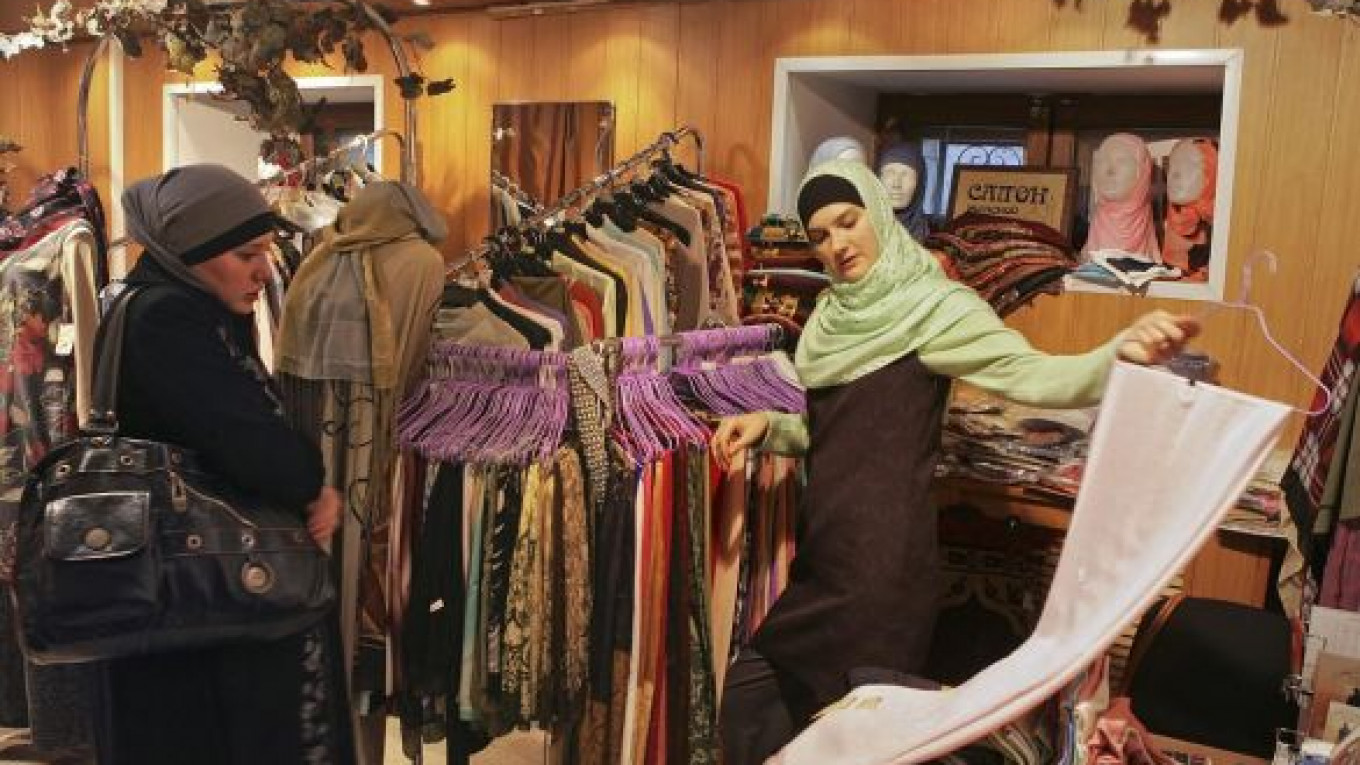The Supreme Court on Wednesday upheld an earlier court ruling banning Muslims from wearing headscarves in secondary schools in the Stavropol region.
The court rejected an appeal filed by lawyer Murad Musayev on behalf of the southern region's Muslim population against the earlier decision by a local judge to ban hijabs, a type of veil that covers the head and is usually worn by women.
In an earlier ruling banning the headscarves, the Stavropol regional court ruled that education was secular in Russia and said that restrictions on appearance were intended to help schools function "normally" by promoting equality among students of different denominations and faiths. The court said students' appearance should "conform with business style and be of a secular character."
Musayev argued, however, that the ban on hijabs in schools violates Muslim's constitutional right to wear religious symbols, Interfax reported Wednesday.
"The Russian Constitution guarantees everyone the right to choose one's religion, while only federal legislators can put restrictions on freedom of conscience and freedom of religion," he said in the appeal.
Members of the Muslim population said they went to court because they were not allowed to attend
school dressed according to their religious beliefs, forcing them to either transfer to a religious school or study at home.
In February, the court rejected a similar suit on the grounds that freedom of religion does not entail the right to wear religious symbols.
Musayev filed an appeal at the same court on April 22, and it was later sent to the Supreme Court in a bid to abolish the regional government's directive from Oct. 31, 2012 that established unified standards for students' appearance. The directive resulted in several girls wearing headscarves being denied access to classes for two weeks.
On Oct. 18, 2012 President Vladimir Putin commented on the matter at a meeting with members of the All-Russia People's Front, saying that authorities should respect religious beliefs but base their decisions on the secular nature of the state.
A Message from The Moscow Times:
Dear readers,
We are facing unprecedented challenges. Russia's Prosecutor General's Office has designated The Moscow Times as an "undesirable" organization, criminalizing our work and putting our staff at risk of prosecution. This follows our earlier unjust labeling as a "foreign agent."
These actions are direct attempts to silence independent journalism in Russia. The authorities claim our work "discredits the decisions of the Russian leadership." We see things differently: we strive to provide accurate, unbiased reporting on Russia.
We, the journalists of The Moscow Times, refuse to be silenced. But to continue our work, we need your help.
Your support, no matter how small, makes a world of difference. If you can, please support us monthly starting from just $2. It's quick to set up, and every contribution makes a significant impact.
By supporting The Moscow Times, you're defending open, independent journalism in the face of repression. Thank you for standing with us.
Remind me later.






